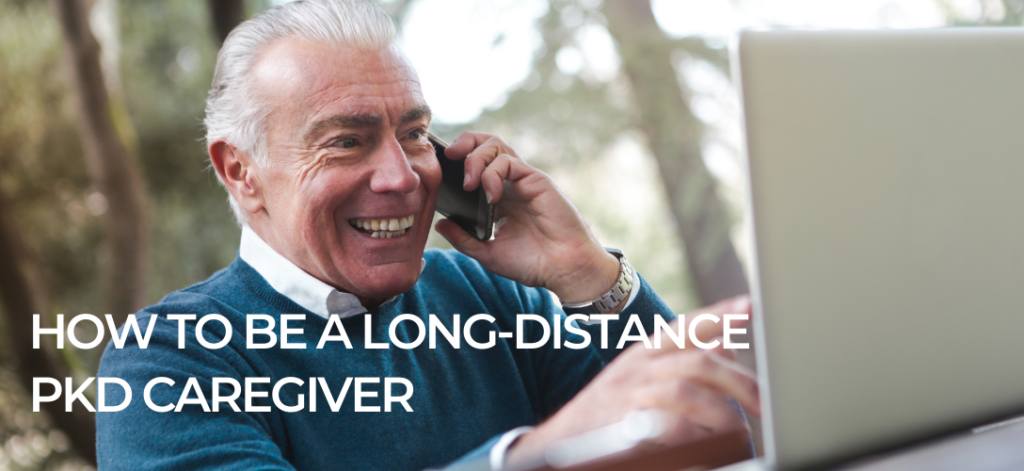
Published September 22, 2020 | When your loved one has PKD but lives hundreds of miles away or more, staying involved as a PKD caregiver can be trying. Mary Perry, of Antioch, Illinois, learned that firsthand when her son Michael was living in South Carolina and was diagnosed with PKD. Doctors first diagnosed him with ARPKD but discovered months later that he really had ADPKD. MRIs were not properly shared among doctors, and his medical team had incorrect information, which affected his treatment.
Though her son was 33 years old, Perry felt he needed assistance. So she moved in with him for five months to help him find the right doctors and take care of himself. Luckily, she was able to leave her Chicago-area home to join him in South Carolina as his caregiver.
“It’s one of the hardest things,” she says of having a relative be in another state. “It was horribly frustrating because he didn’t take ownership of his healthcare. He needed me in terms of emotional support because he didn’t know how to ask the right questions. He was living alone, and it was very frightening.”
The long-distance dilemma
The Perry family story is not that unusual, says Teri Browne, Ph.D., associate dean for faculty and research and associate professor at the University of South Carolina College of Social Work.
“There are definitely communication challenges with loved ones’ health teams in terms of understanding what’s going on with care,” she says. “Between HIPAA laws and the nature of communicating with healthcare professionals, it can be challenging for the patient—and extra complicated when you have a distance between you.”
So how you can still act as a PKD caregiver and help your loved one when you live far away?
Here are a few ideas to make the distance easier.
Identify a nurse or an aide
In your loved one’s nephrologist’s office, find a nurse or aide who you can talk to about the latest developments. During visits, consider conferencing in on speakerphone.
Take advantage of available help
Medicare mandates that kidney centers have masters-level social workers, dietitians, and nurses, all of whom can be resources for you, says Browne. If your loved one is receiving dialysis or preparing for a transplant, you can tap into those kidney center professionals.
Consider having meals delivered
Online meal delivery services can ship kidney-healthy food to your loved one’s doorstep. Relieving your concerns that he or she may not be eating right.
Participate virtually
“More and more dialysis units are offering Wi-Fi, tablets, and laptops for families so they can Skype, FaceTime, or directly communicate with family members while they are receiving treatment,” Dr. Browne says.
Empower your loved one to participate in the ADPKD Registry
By encouraging your loved one to join the ADPKD Registry, they’ll feel empowered and informed. This program lets your loved one take a hands-on approach in furthering research for new treatments. It provides them an outlet to share their PKD experience and gives them insights into ongoing research.
Want to see more articles like this? Read the full issue of our magazine, PKD Life, and subscribe to future issues here.









Thank you for writing this article. My son is 2000 miles away and is in end stage renal disease. I totally related to the challenges you mentioned.
PKD is indeed a family disease. It is very frustrating and upsetting to be so far away from their in-person care.